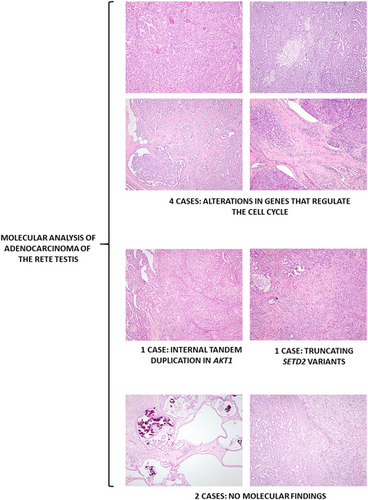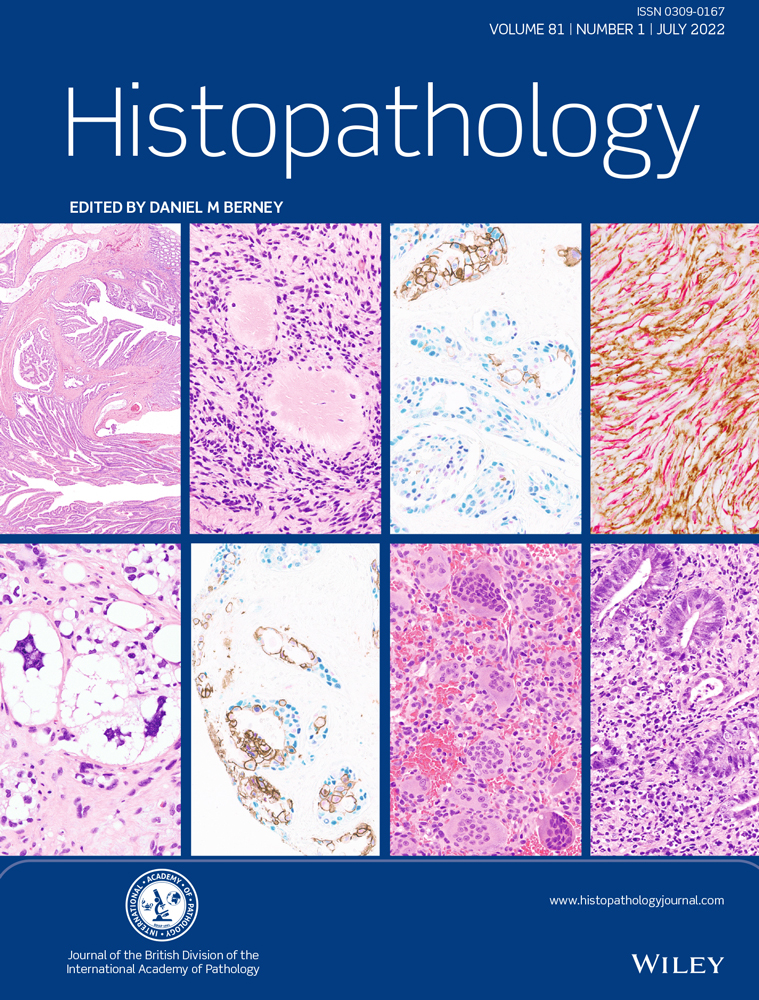Molecular analysis of adenocarcinomas of the rete testis demonstrates frequent alterations in genes involved in cell cycle regulation
Abstract
Adenocarcinomas of the rete testis (ACRT) are rare and aggressive testicular neoplasms that present predominantly in older men and have a tendency for early systemic spread. Their morphology spans a wide spectrum, including tumors with glandular, solid, papillary, micropapillary, glomeruloid, cribriform, and sarcomatoid growth patterns, or a combination thereof. The genomic alterations associated with these tumors have not been studied previously. We assessed eight ACRT published in prior clinicopathologic series using a solid tumor DNA sequencing panel. Pathogenic variants were identified in 6/8 cases. More specifically, four cases demonstrated inactivation of genes involved in cell cycle regulation, including CDKN2A, BAP1, TP53, and RB1. CDKN2A was the only recurrently affected gene, with pathogenic variants detected in 3/8 cases. One of these three cases had molecular evidence of concurrent homozygous (i.e. biallelic) NF2 inactivation by a frameshift variant and loss of the wildtype copy of the gene. One case had an internal tandem duplication in AKT, which has been previously described in juvenile granulosa cell tumor and sclerosing pneumocytoma and results in downstream activation of PI3K signaling. The remaining case with positive molecular findings harbored two concurrent truncating SETD2 variants. Multiple arm-level and chromosome-level copy number events were present in 3/8 cases, all of which harbored variants in genes involved in cell cycle regulation. In summary, ACRT are rare tumors with frequent inactivation of genes that play a major role cell cycle regulation, and a subset harbors variants that are potentially amenable to targeted therapy.
Analysis of adenocarcinomas of the rete testis using massively parallel DNA sequencing demonstrates frequent alterations of genes involved in cell cycle regulation (4/8 cases).
Conflicts of Interest
No conflicts of interest were declared.
Open Research
Data Availability Statement
The data generated in this study are available from the corresponding author upon reasonable request.





